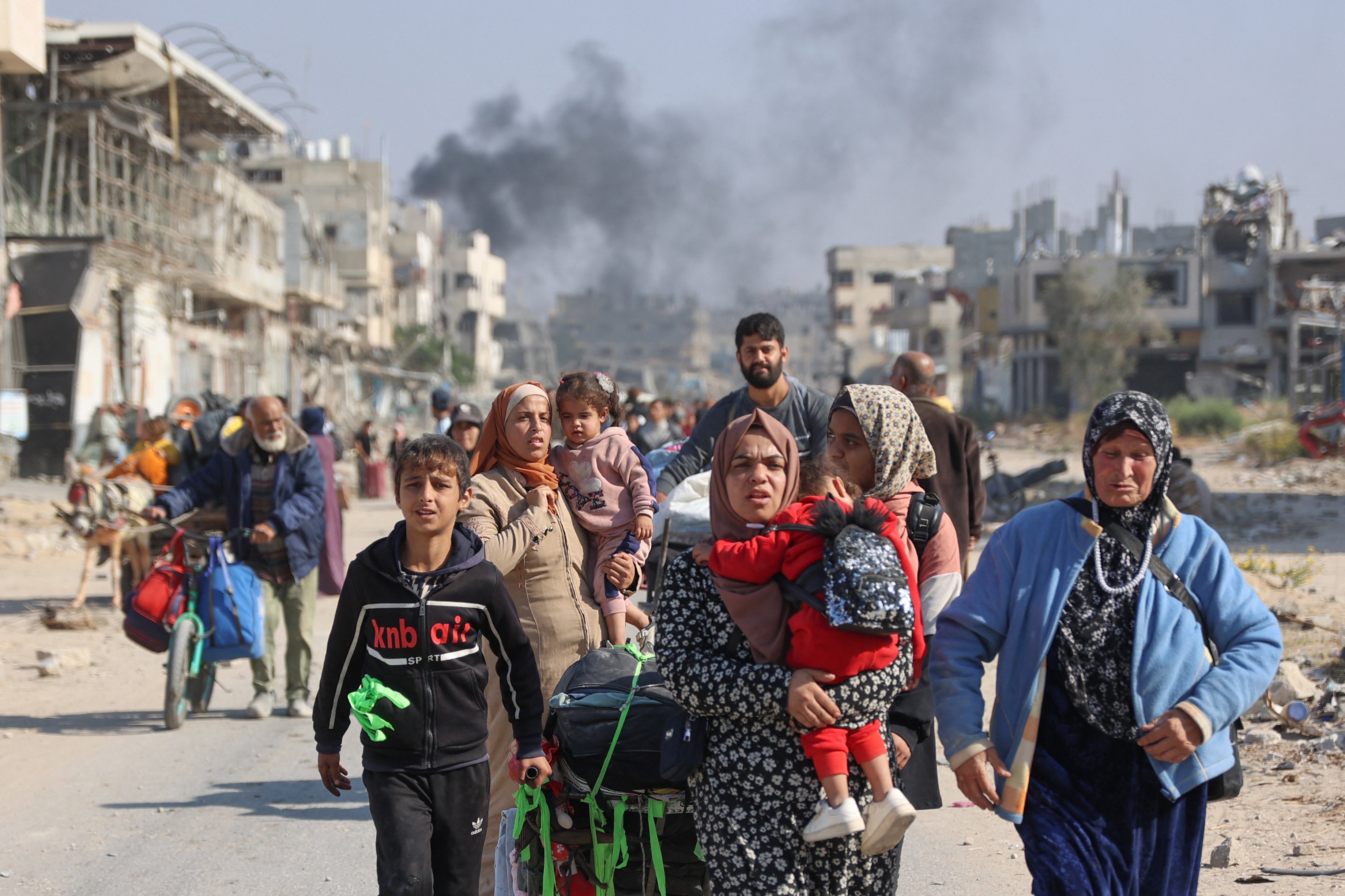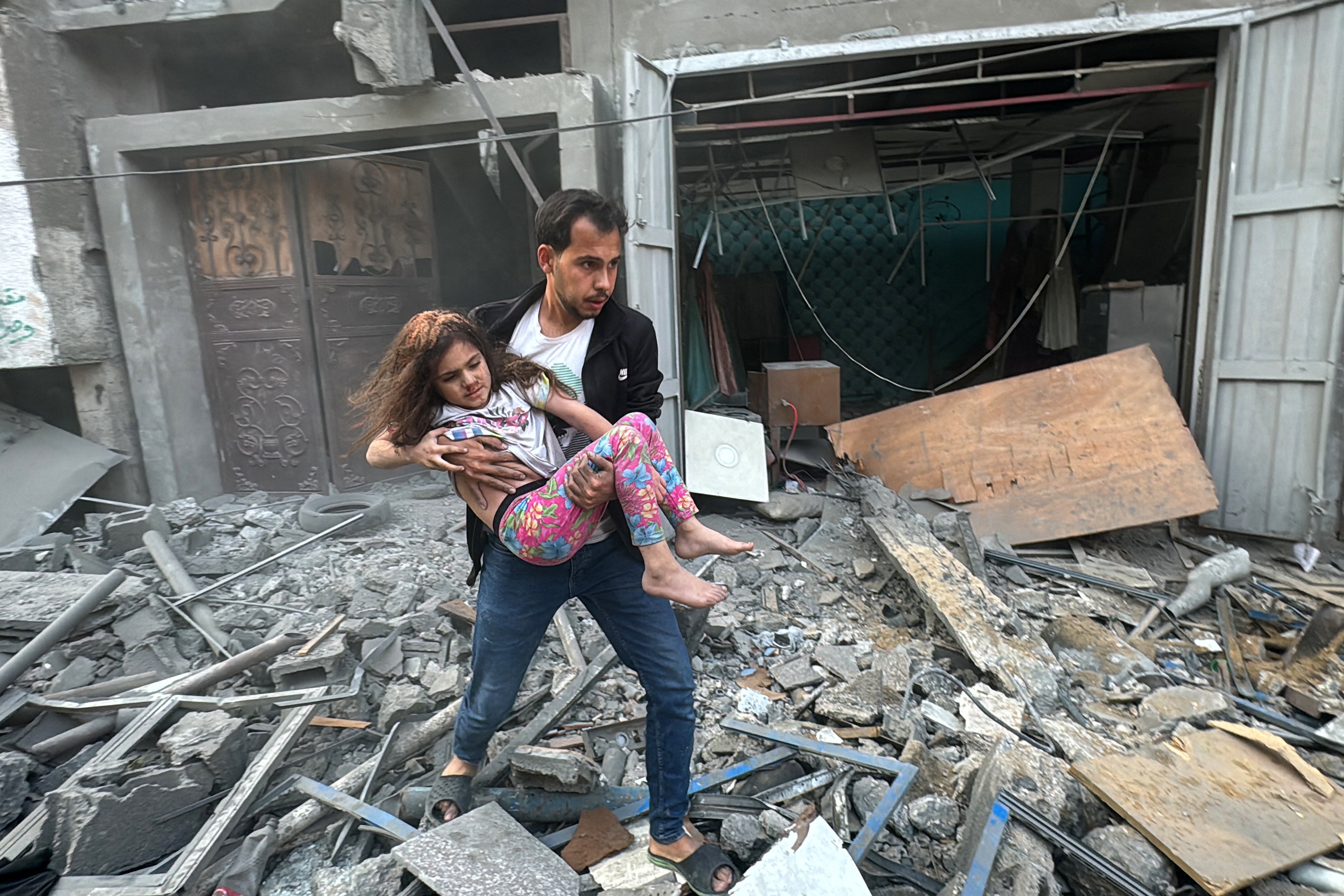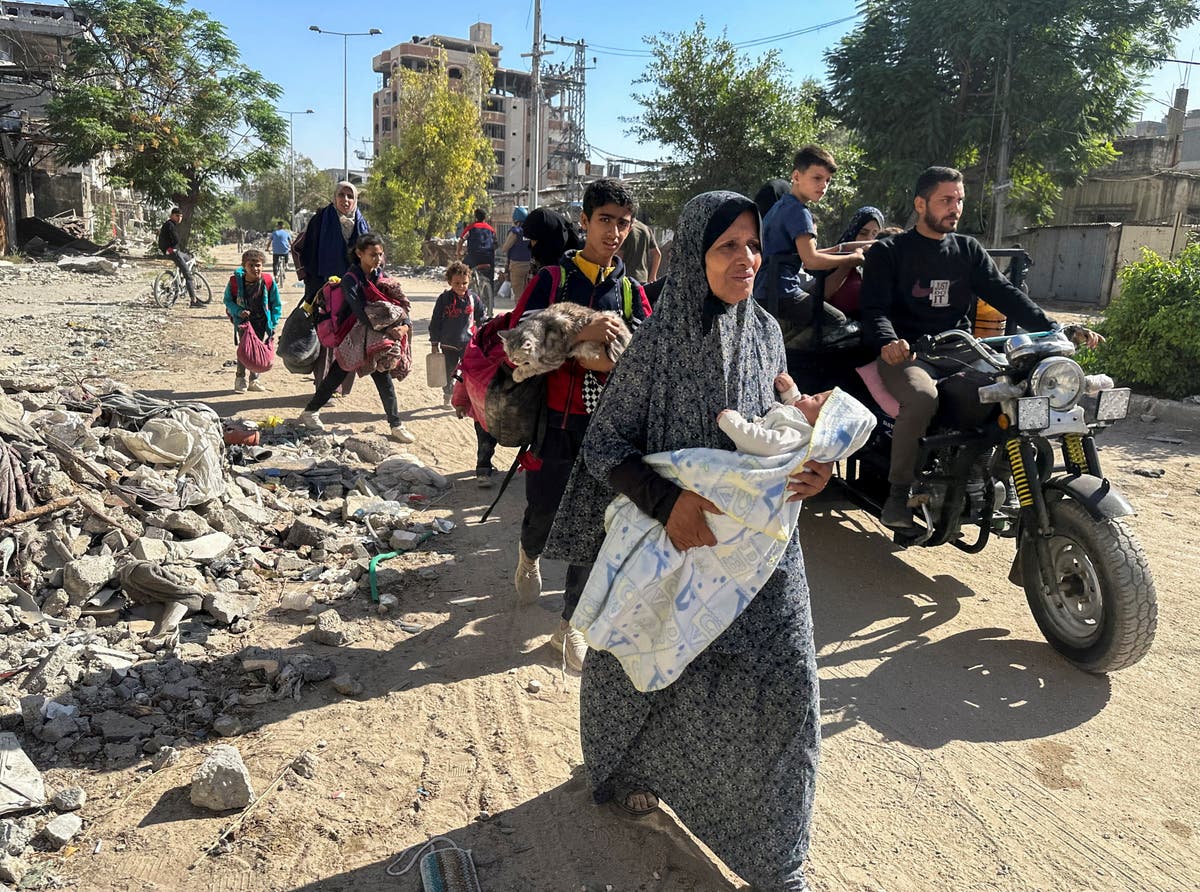Israeli forces have committed war crimes and crimes against humanity in Gaza through a “systematic” campaign of “massive deliberate forced displacement” of Palestinians, Human Rights Watch has said.
The New-York based advocacy group urged governments to impose sanctions and halt weapon sales to avoid “complicity” in these grave violations. The Israeli military has repeatedly denied committing crimes in Gaza, stating to The Independent that it is “committed to international law and operates accordingly”.
In a 154-page report published on Thursday, HRW said there was “no plausible imperative military reason” to justify the mass displacement of 90 per cent of Gaza’s population of 2 million people, with many individuals displaced multiple times in the 13 months since the current began.
It said that statements by senior Israeli officials with command responsibility show that forced displacement was “intentional and forms part of Israeli state policy”, amounting to a crime against humanity.
The report concluded that Israel’s actions “appear to also meet the definition of ethnic cleansing” and urged the International Criminal Court at The Hague to investigate.
“The Israeli government cannot claim to be keeping Palestinians safe when it kills them along escape routes, bombs so-called safe zones, and cuts off food, water, and sanitation,” said Nadia Hardman, HRW’s refugee and migrant rights researcher who authored the report. “Israel has blatantly violated its obligation to ensure Palestinians can return home, razing virtually everything in large areas.”
She called on the US, Germany, and other countries to suspend weapons transfers and military assistance to Israel immediately.
“No one can be in denial about the atrocity crimes the Israeli military is committing against Palestinians in Gaza,” she said. “Transfer of additional weapons and assistance to Israel by the United States, Germany, and others is a blank cheque for further atrocities and increasingly puts them at risk of complicity.”
A spokesperson for the Israeli military said it “calls and acts for the evacuation of the civilian population from combat zones to safer areas whenever possible. Each IDF strike is based on accurate and reliable intelligence.
“There is no IDF doctrine that aims to cause maximal damage to civilian infrastructure regardless of military necessity. IDF actions are based on military necessity and in accordance with international law,” they said, adding that Israel has documented cases of Hamas operating from within densely populated areas.
Israel launched its bombardment of Gaza after Hamas’s 7 October 2023 attacks on southern Israel, when militants killed around 1,200 people and took more than 250 hostages, according to Israel’s count.
Since then Israeli strikes have flattened swathes of Gaza, killing more than 43,000 people, the majority of them women and children, according to Palestinian health officials. The lack of access to basic humanitarian aid has pushed the tiny enclave to the brink of famine.
In recent weeks, Israeli forces have encircled and isolated northern Gaza, maintaining that Hamas militants have regrouped there.
Israel has also been striking deeper into Lebanon as part of its simultaneous conflict with the Lebanese militant group Hezbollah. Since October, over 3,200 people have been killed by Israeli operations and airstrikes in Lebanon, according to the Lebanese health ministry. In Israel, 76 people have died, including 31 soldiers.
Israel faces mounting global criticism for the toll its war has taken on civilians in Gaza, including accusations of blocking food, aid and medical supplies, as well as the forced displacement of civilians and the demolition of homes. HRW said its apparent aim to establish a “buffer zone and security corridor” does not comply with the laws of war. Multiple human rights groups and UN investigators have warned that Israeli military conduct could constitute war crimes, something Israel has vehemently denied.
The Hamas militant group has also been accused of war crimes.

HRW said its report was based on interviews with 39 displaced Palestinians in Gaza, analysis of Israel’s evacuation system including 184 evacuation orders, satellite imagery confirming widespread destruction, and verified videos and photographs of attacks on designated safe zones and evacuation routes.
The advocacy group found that Israel’s evacuation orders were inconsistent, inaccurate, and “frequently not communicated to civilians with enough time to allow evacuations or, in many cases, at all.”
The report stated that evacuation orders also failed to accommodate people with disabilities, many of whom are unable to leave without assistance, and that designated evacuation routes and safe zones were repeatedly attacked by the Israeli military.
HRW said that senior officials in the Israeli government and the war cabinet had made clear their intent to displace the Palestinian population of Gaza. In November 2023, Israel’s agriculture minister Avi Dichter said: “We are now rolling out the Gaza Nakba.” The Nakba – or catastrophe – is the term Palestinians use to refer to when they were forced to leave or fled their homes during the 1948 conflict surrounding the creation of Israel.

In January, Israeli prime minister Benjamin Netanyahu said Israel has “no intention of permanently occupying Gaza or displacing its civilian population.”
Gideon Saar, Israel’s foreign minister, said on Monday that residents could return to northern Gaza only after Israel had achieved its military objectives and the war was over.
Israel’s far-right national security minister, Itamar Ben Gvir, stated in January: “We must promote a solution to encourage the emigration of Gaza’s residents.”
Last October, then-security cabinet member and now defence minister Israel Katz shared a post online ordering “all the civilian population in Gaza to leave immediately,” adding: “We will win. They will not receive a drop of water or a single battery until they leave the world.”
On Wednesday, Israel rejected accusations from eight international aid groups, including Oxfam and Save the Children, that it had failed to meet US demands to improve the humanitarian situation in Gaza. Washington had given Israel 30 days to implement these demands, threatening a potential halt to US military support. Tuesday marked the deadline for meeting these requirements – but the US State Department said Israel will face no policy consequences for the lack of aid.

